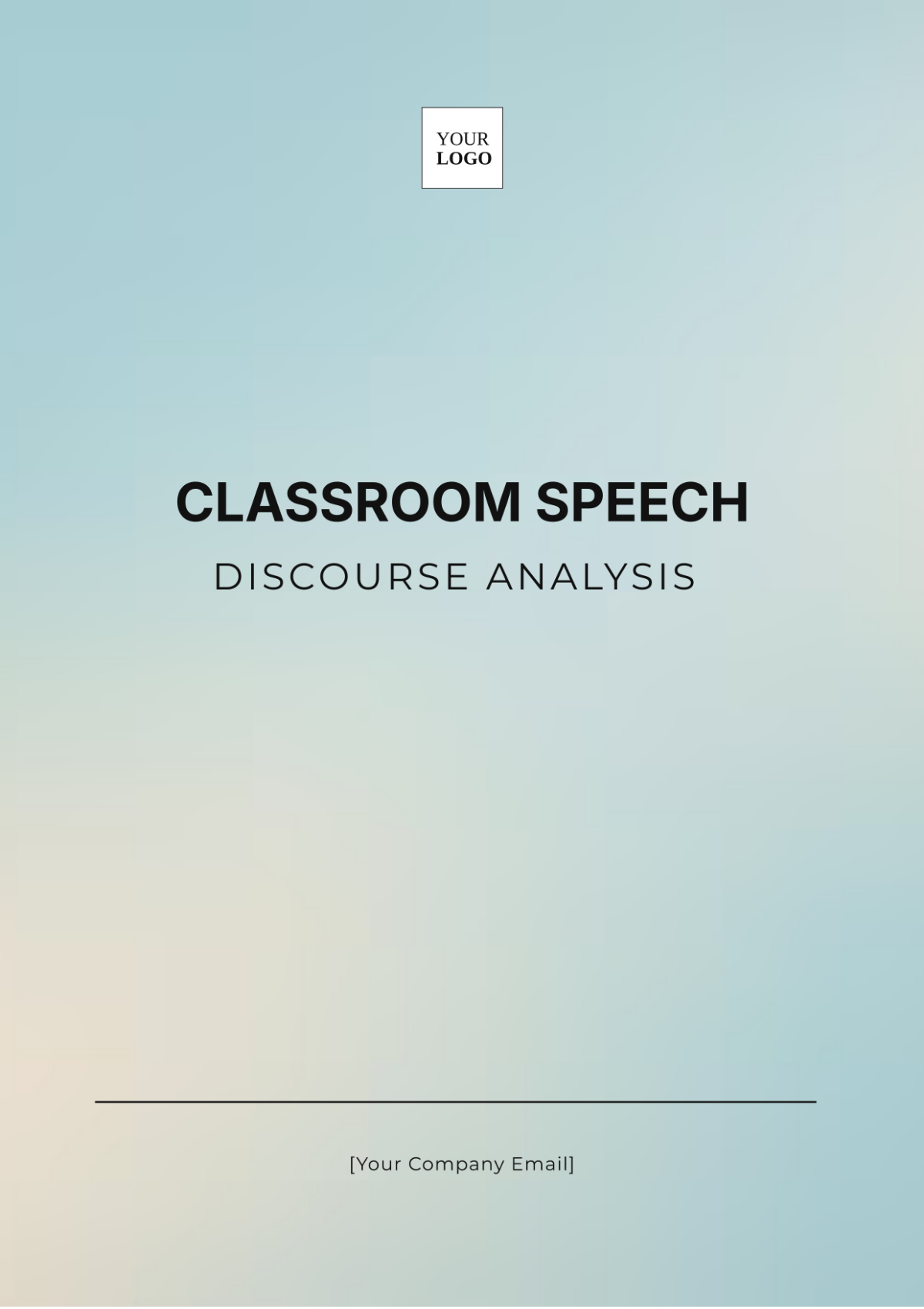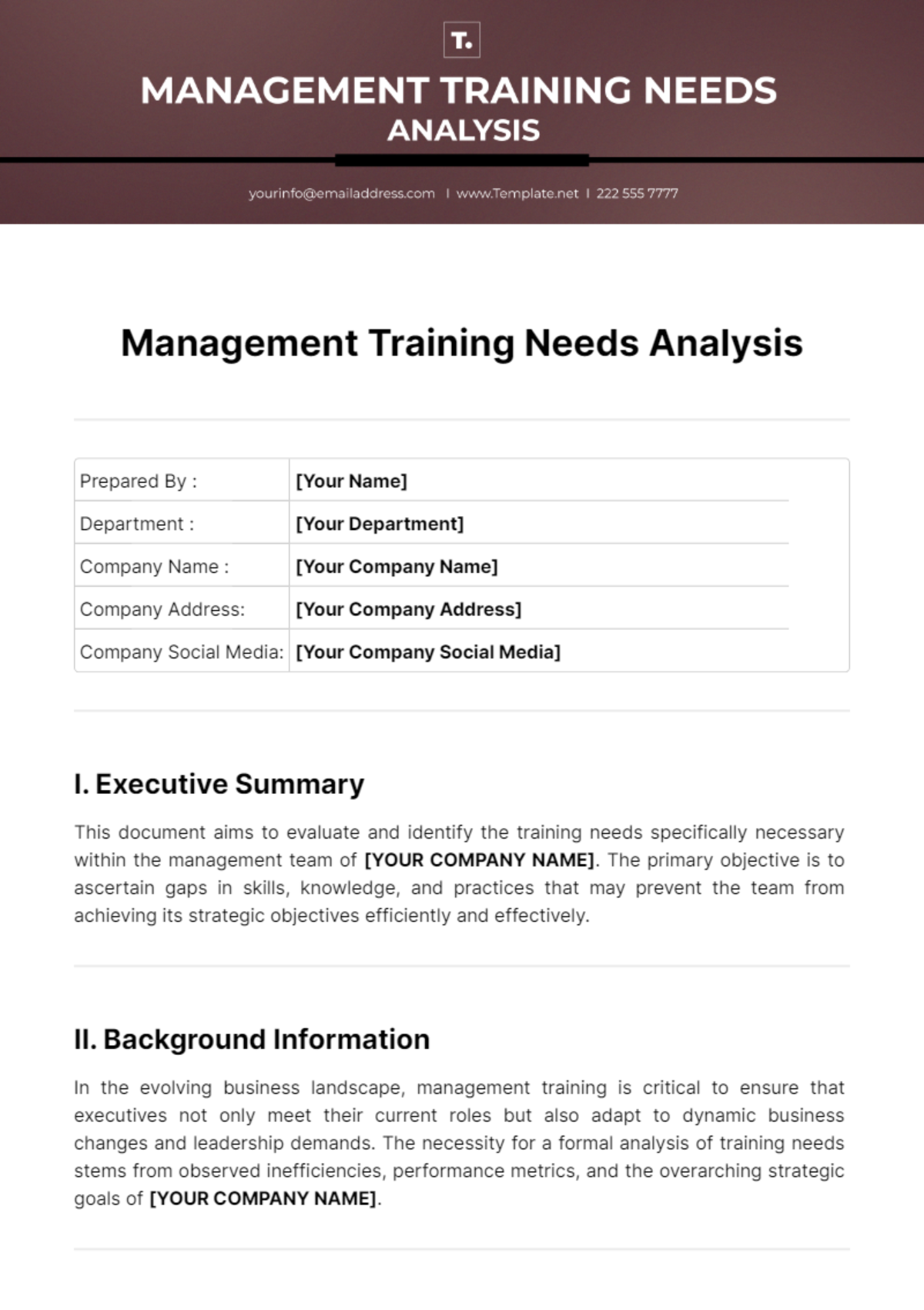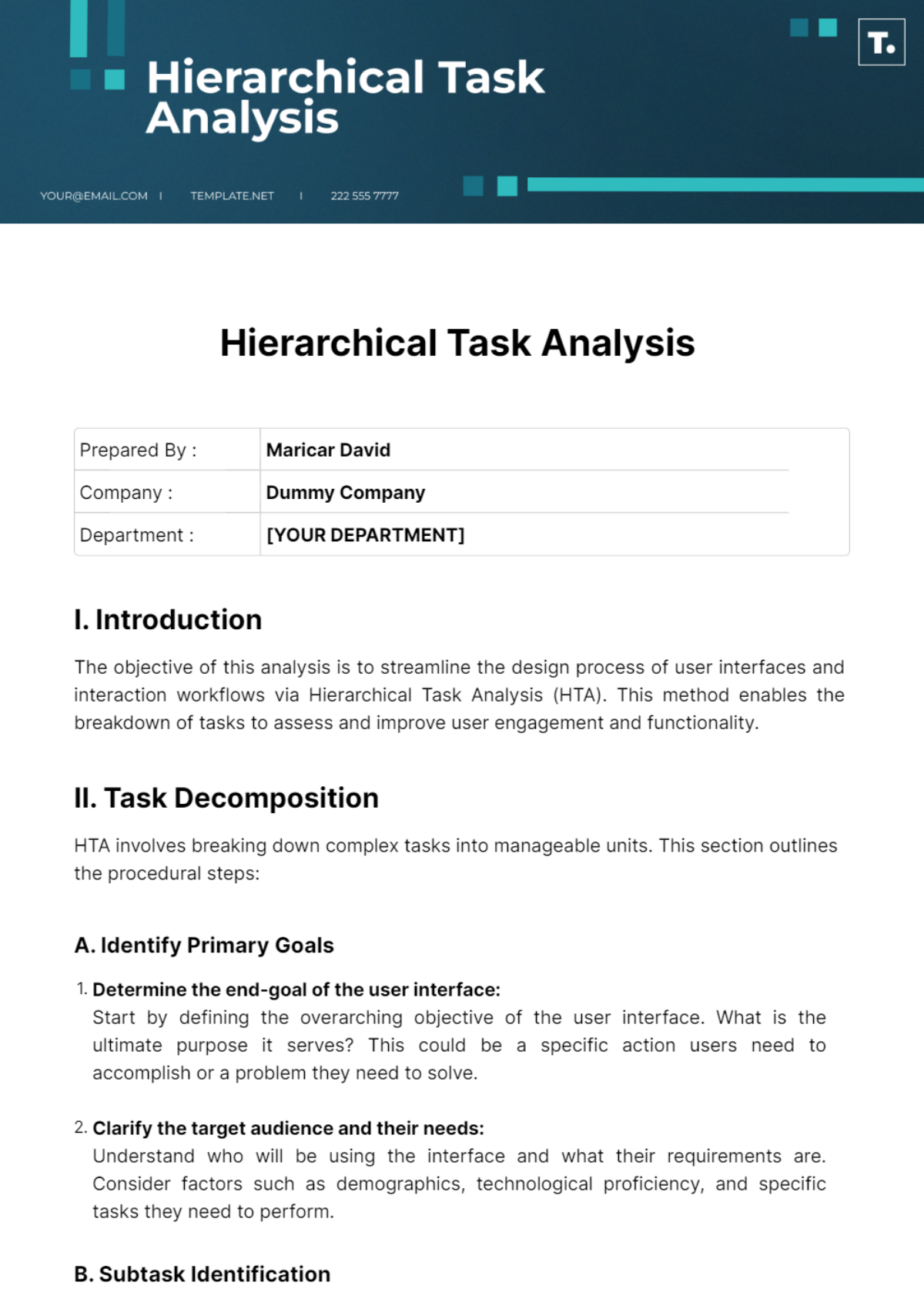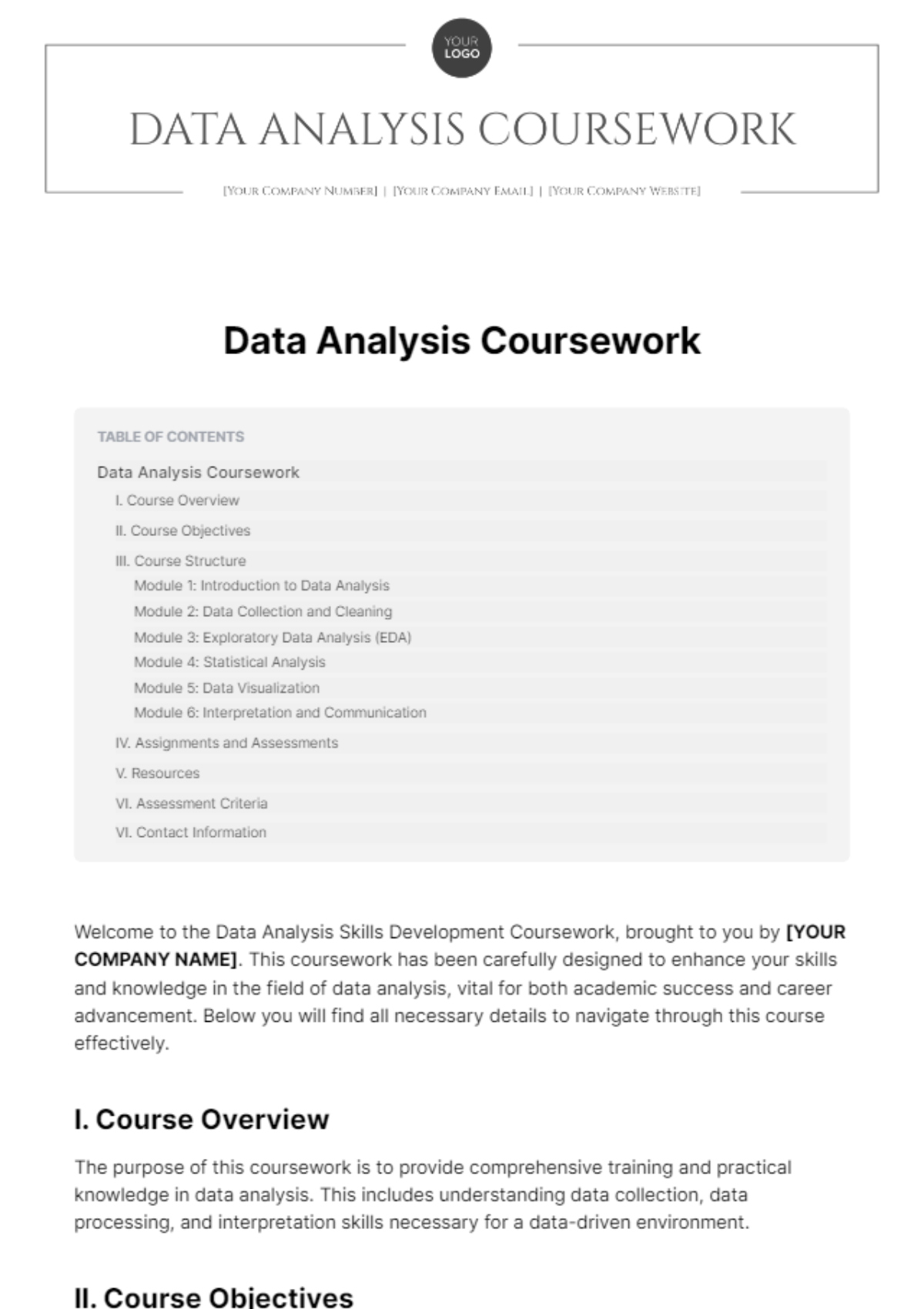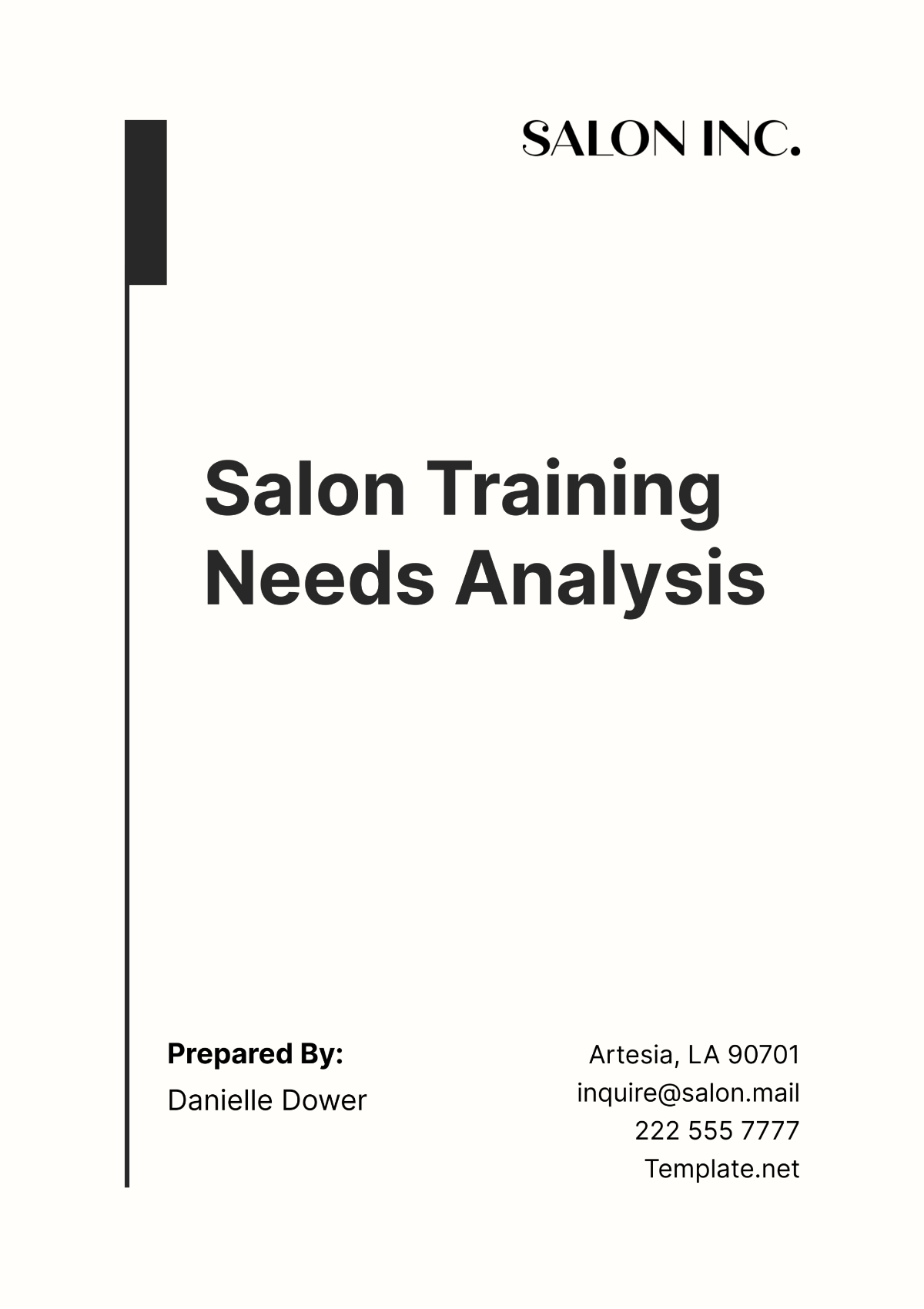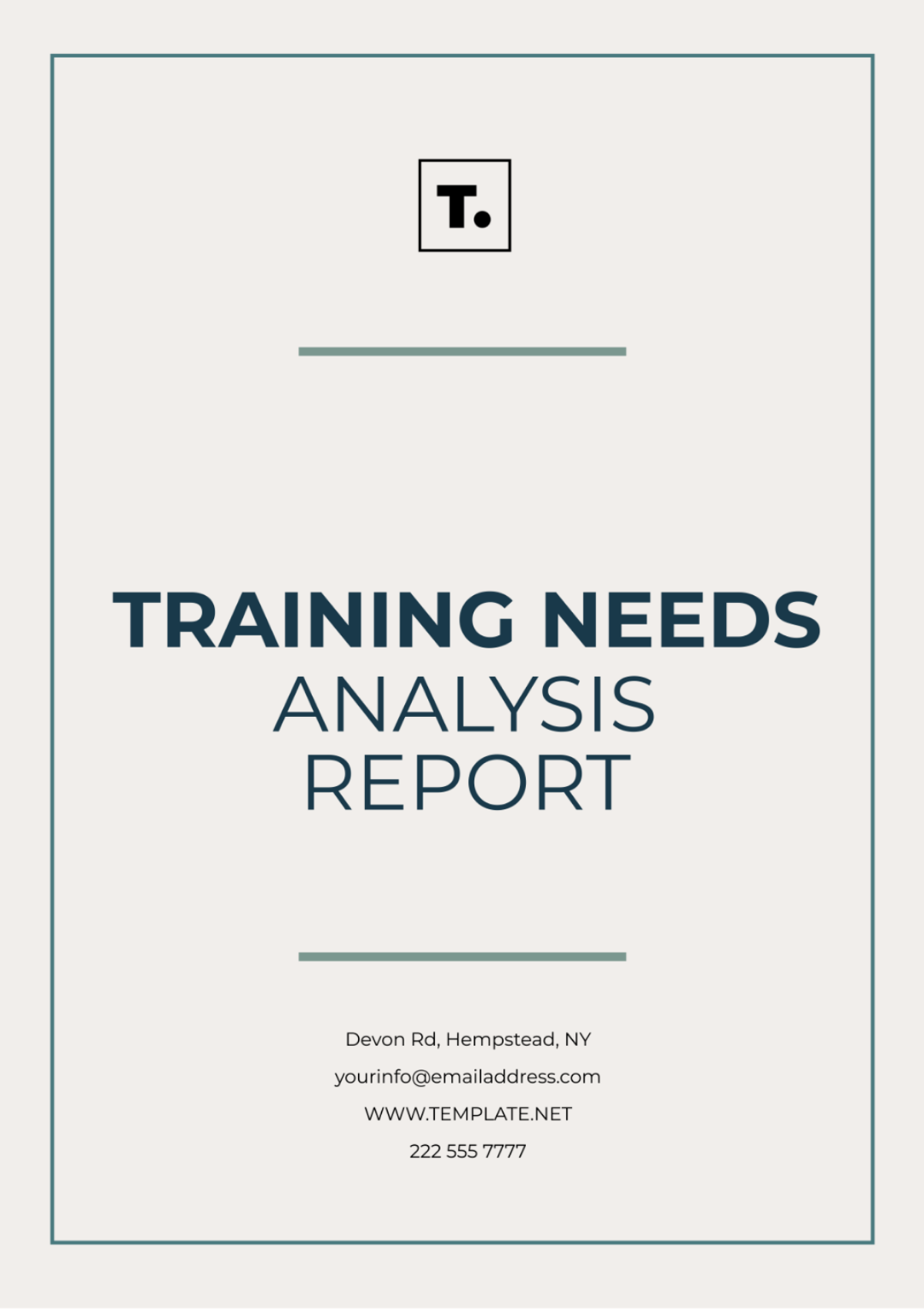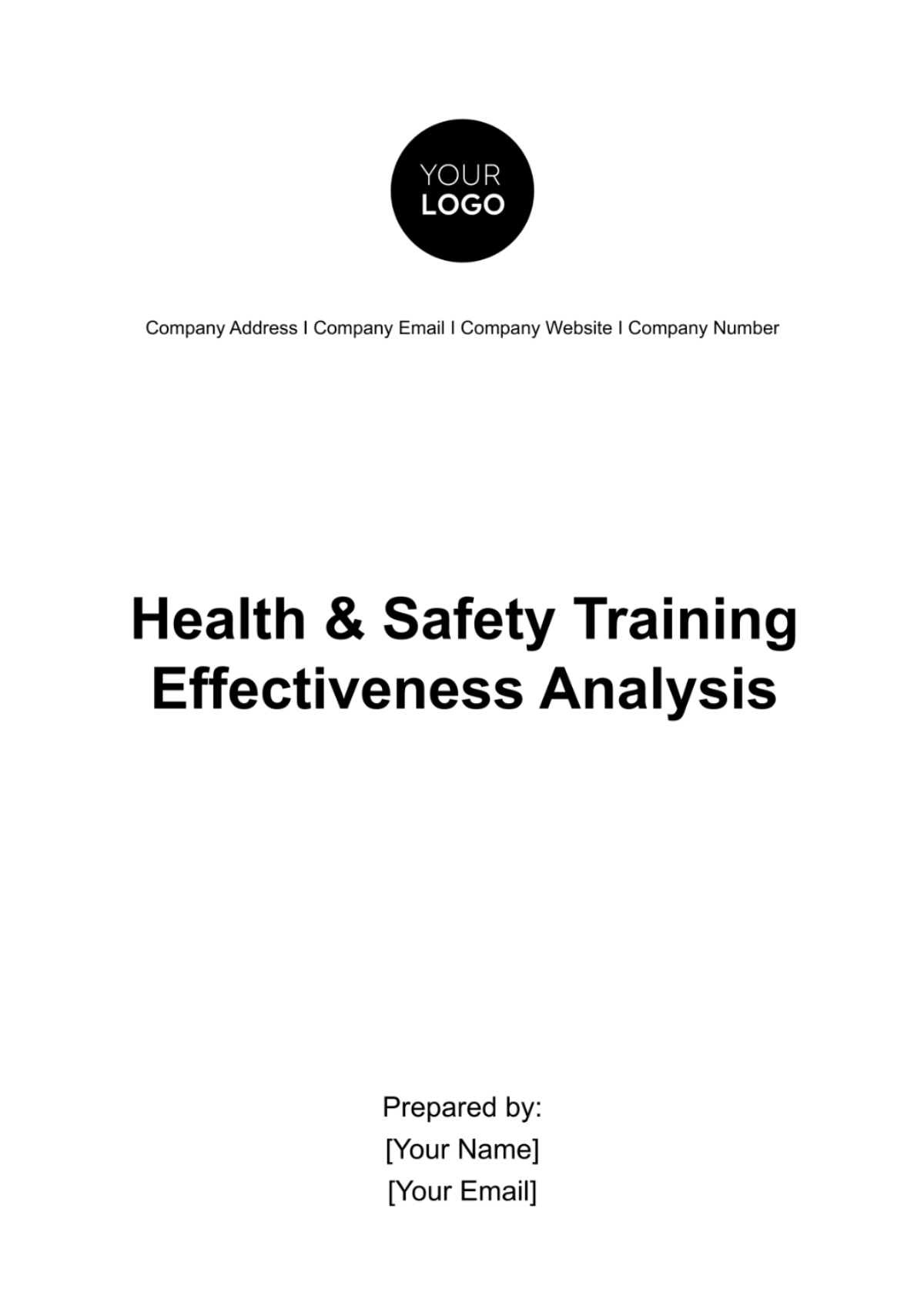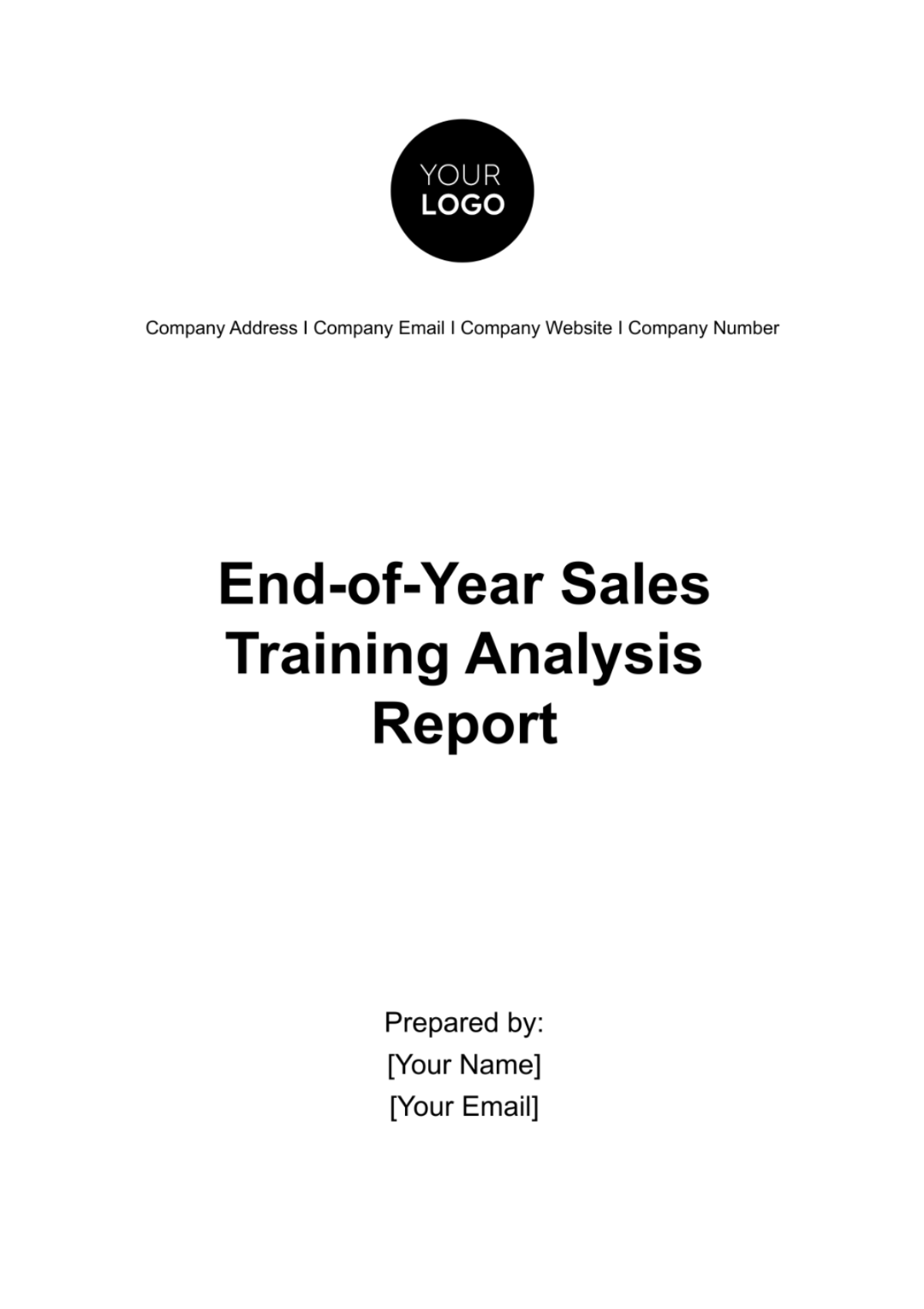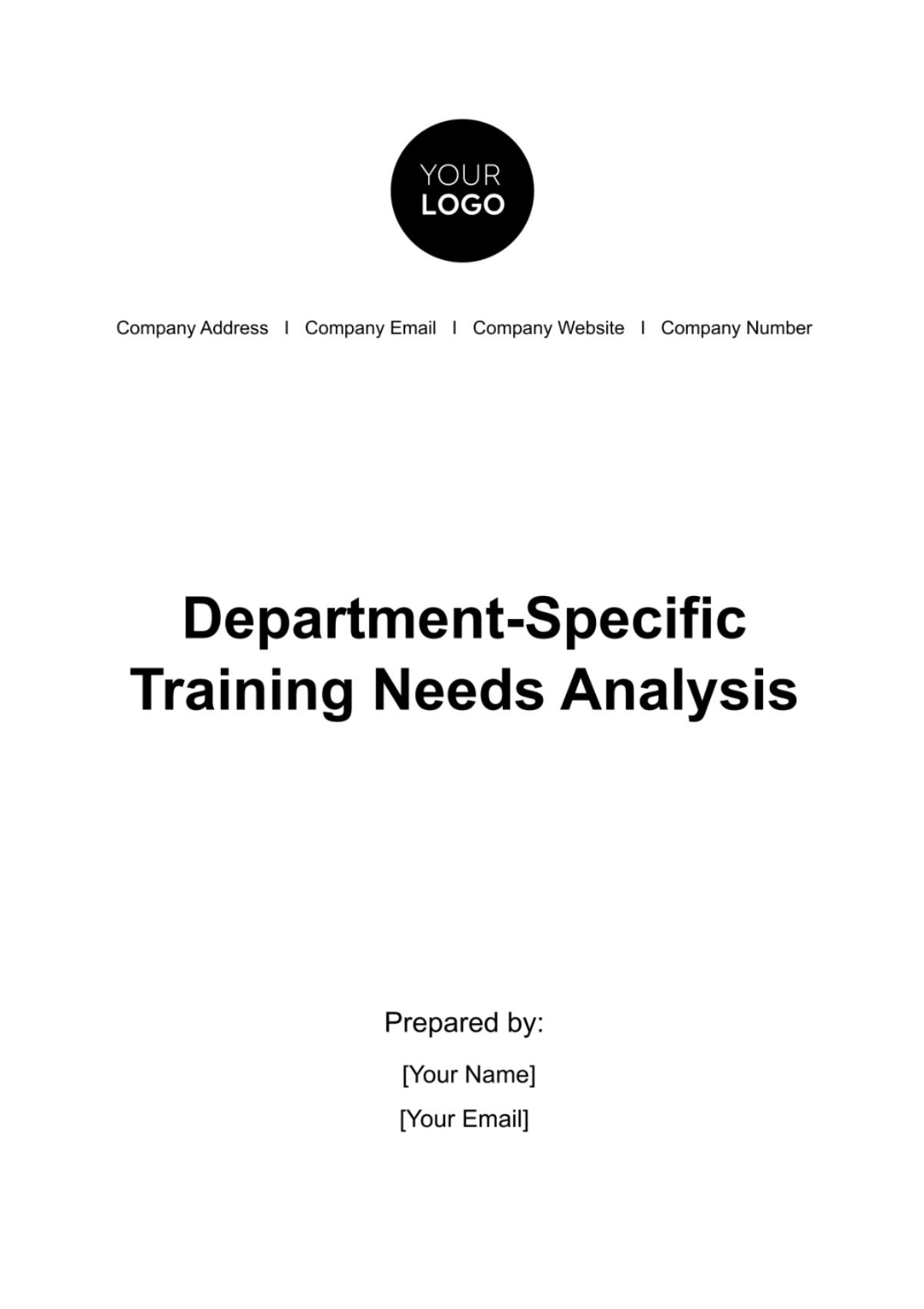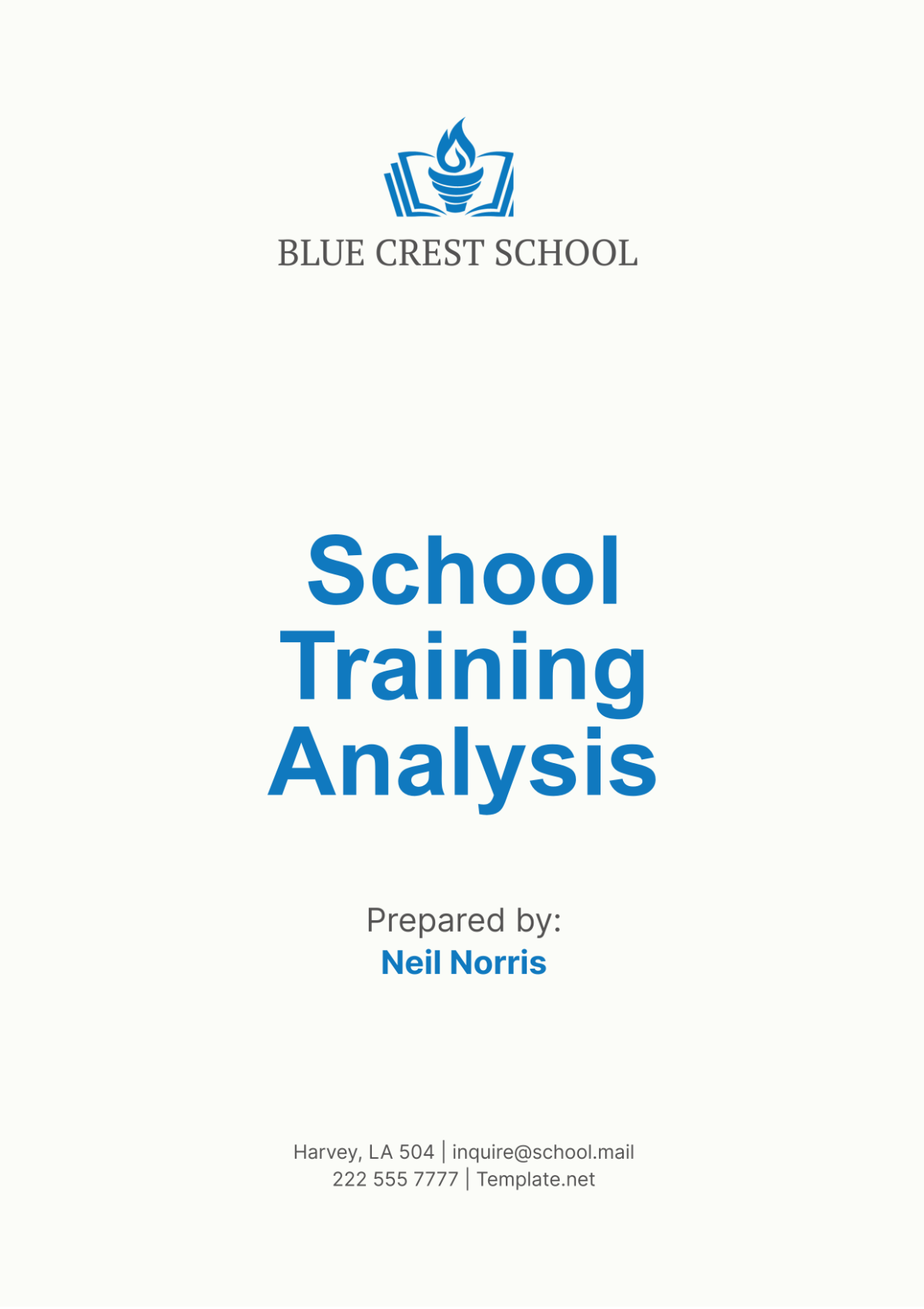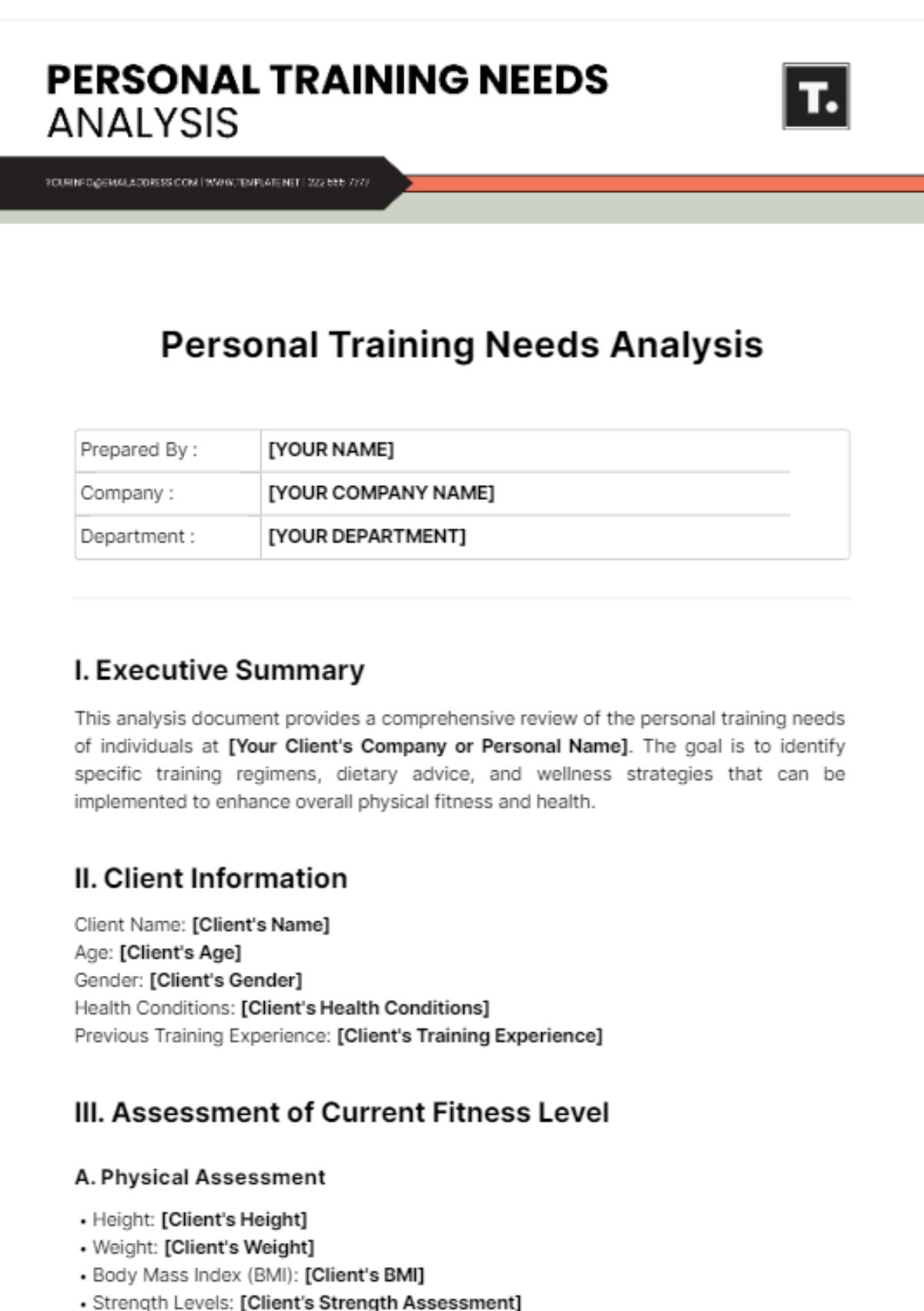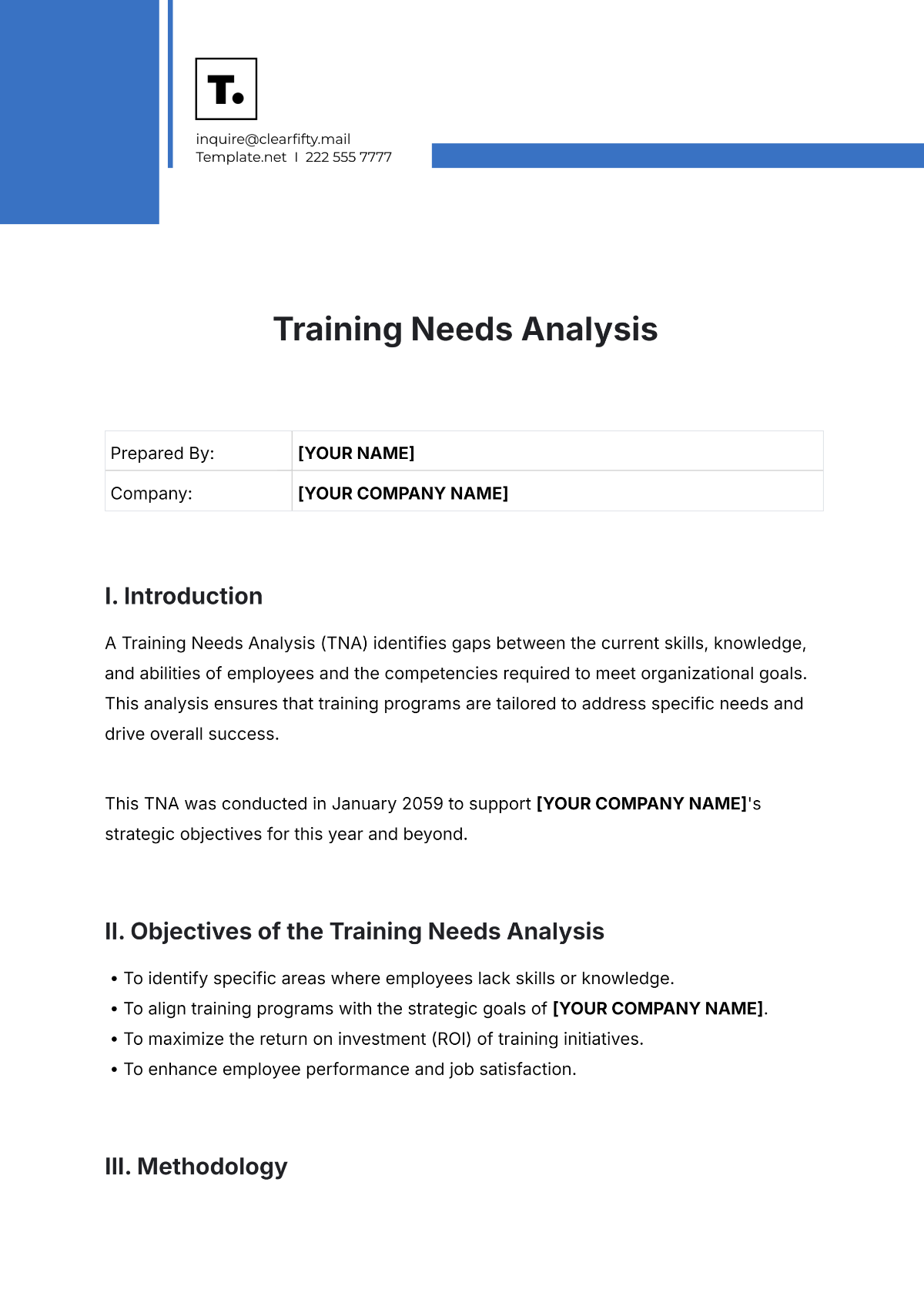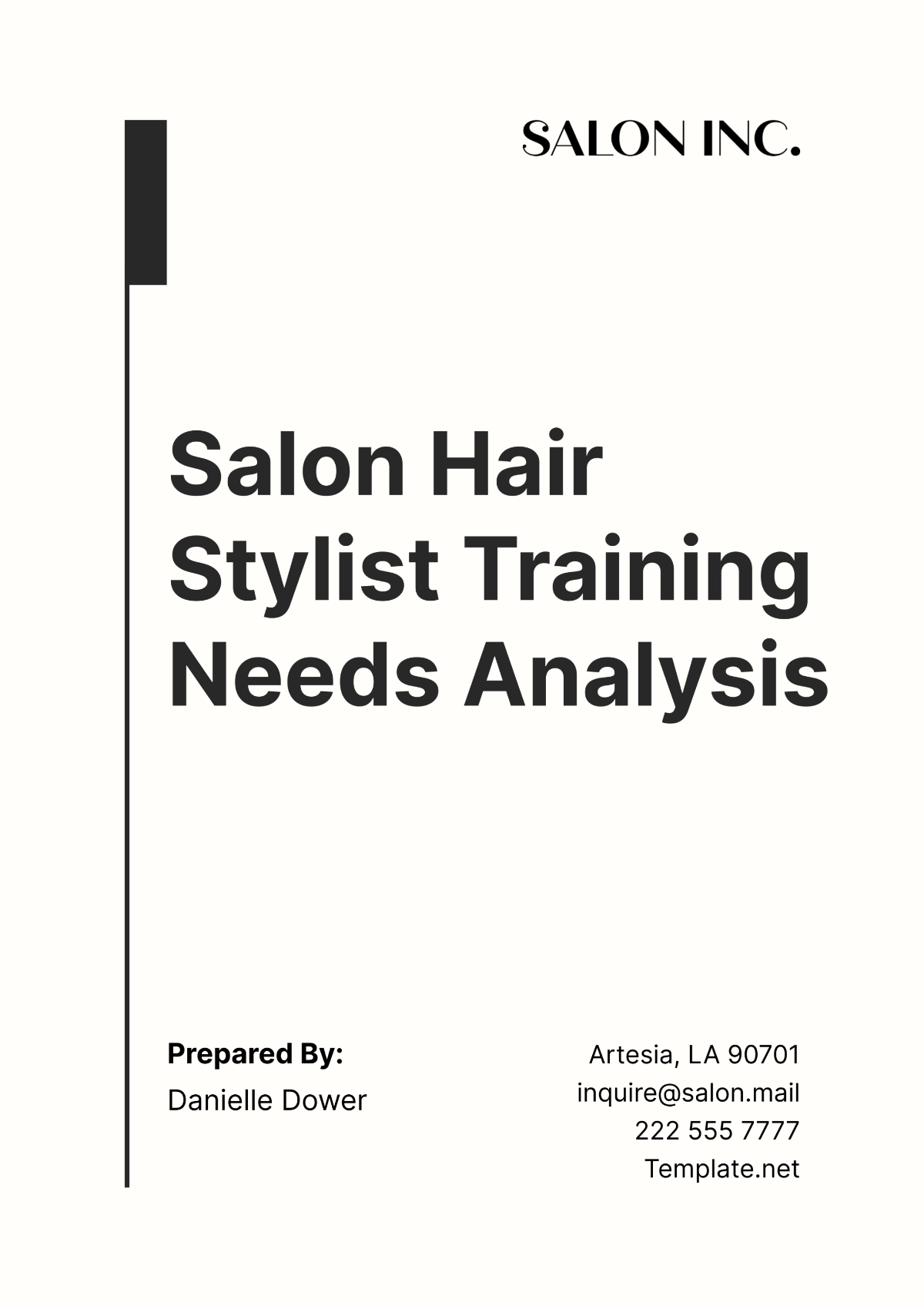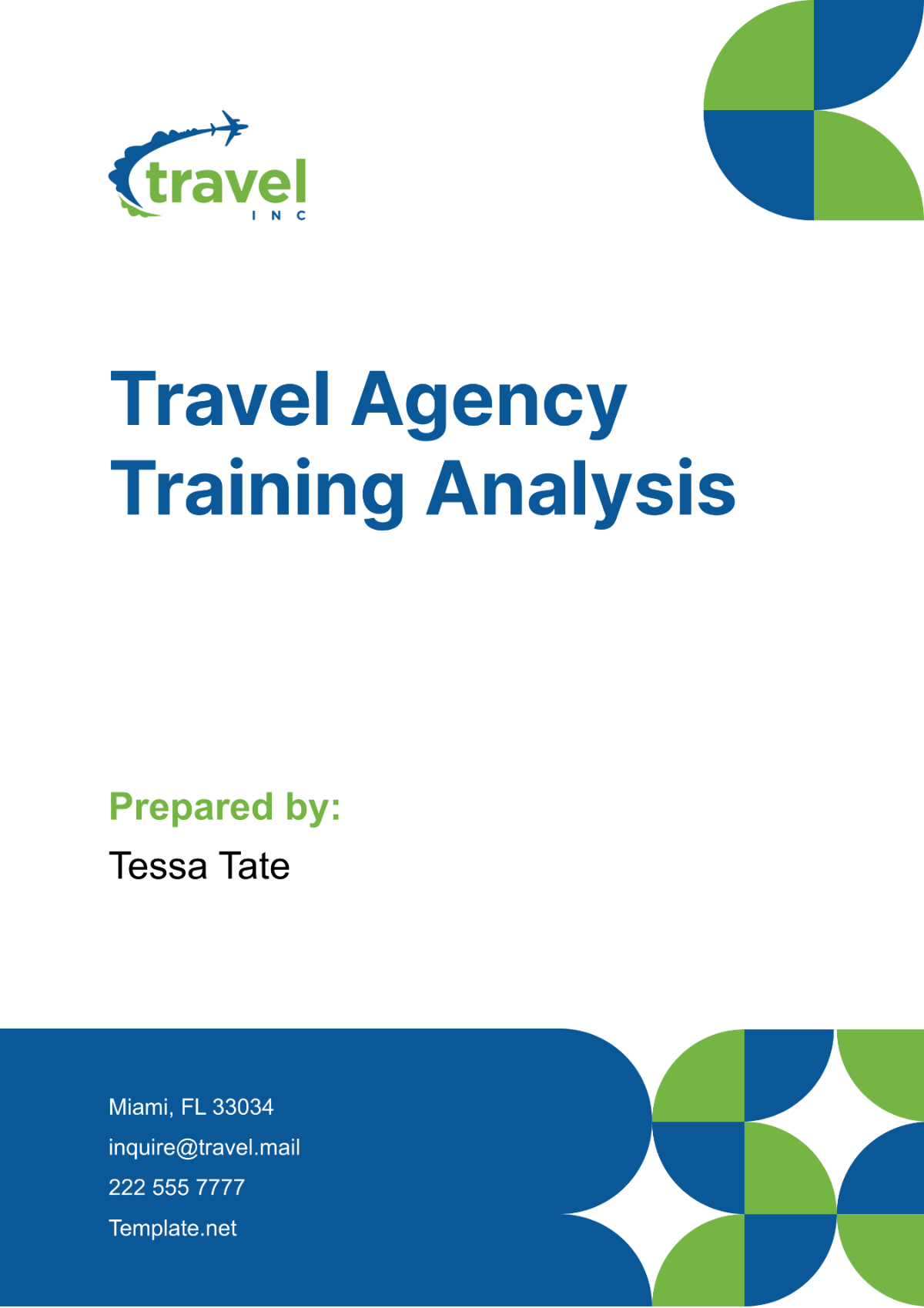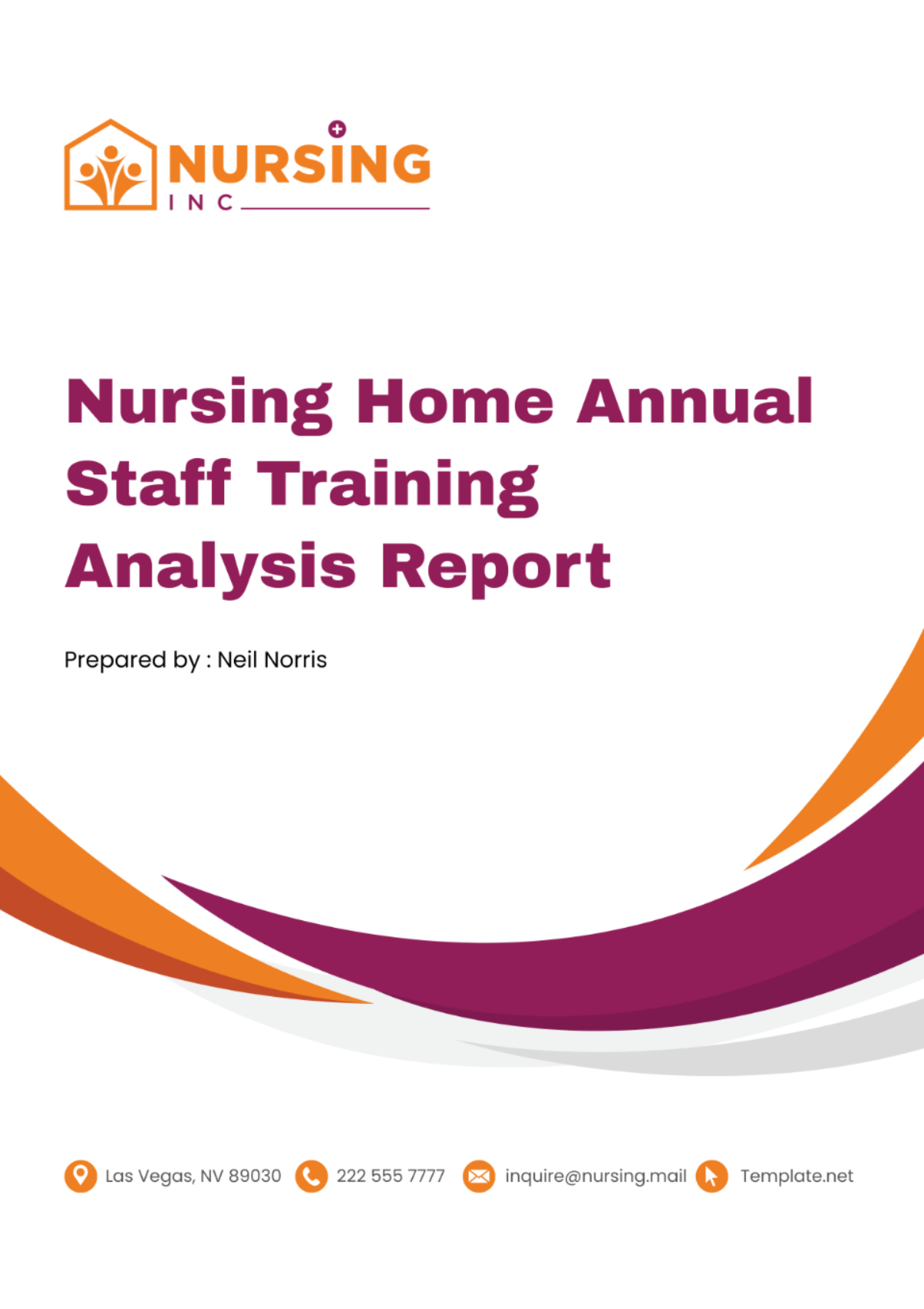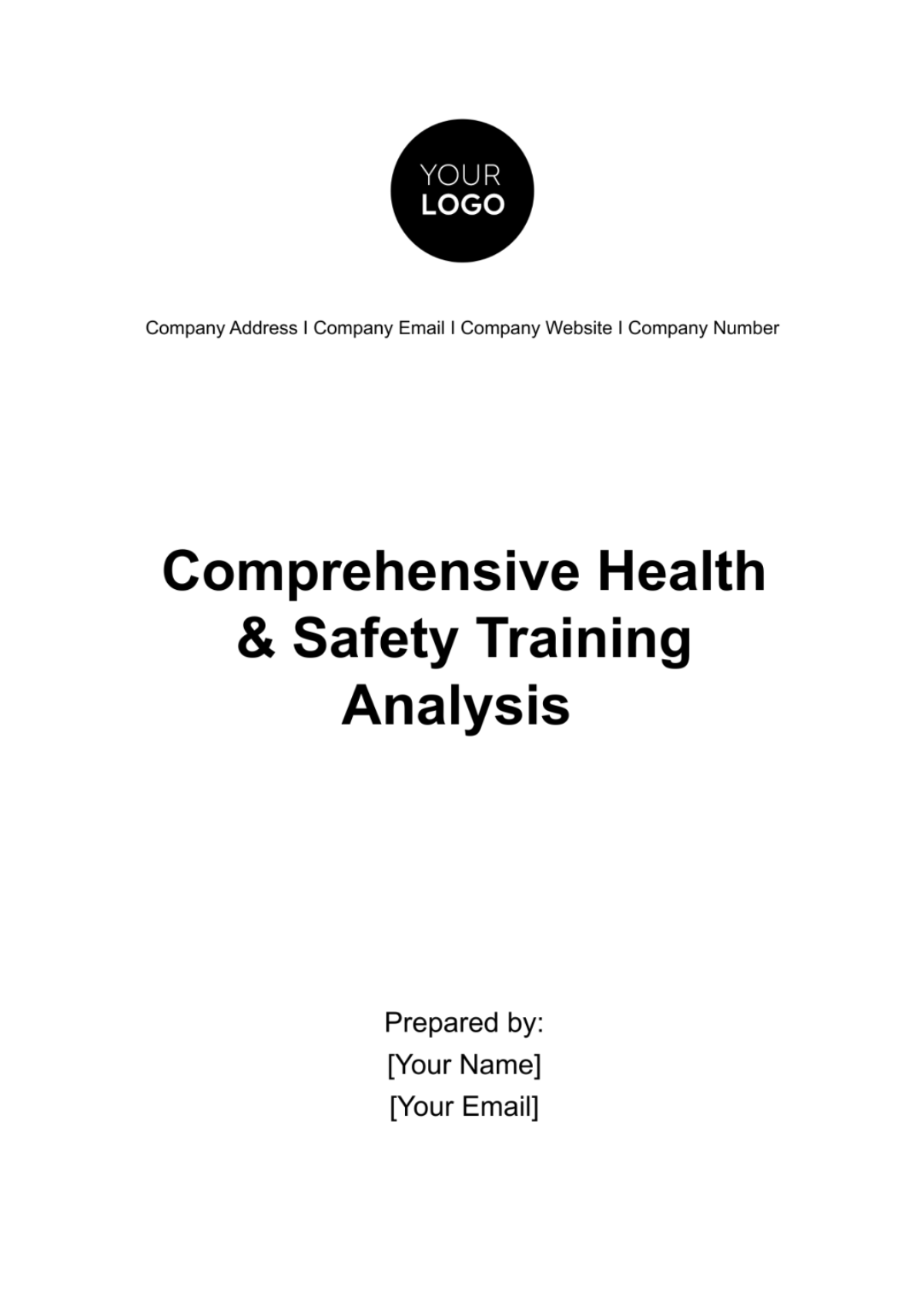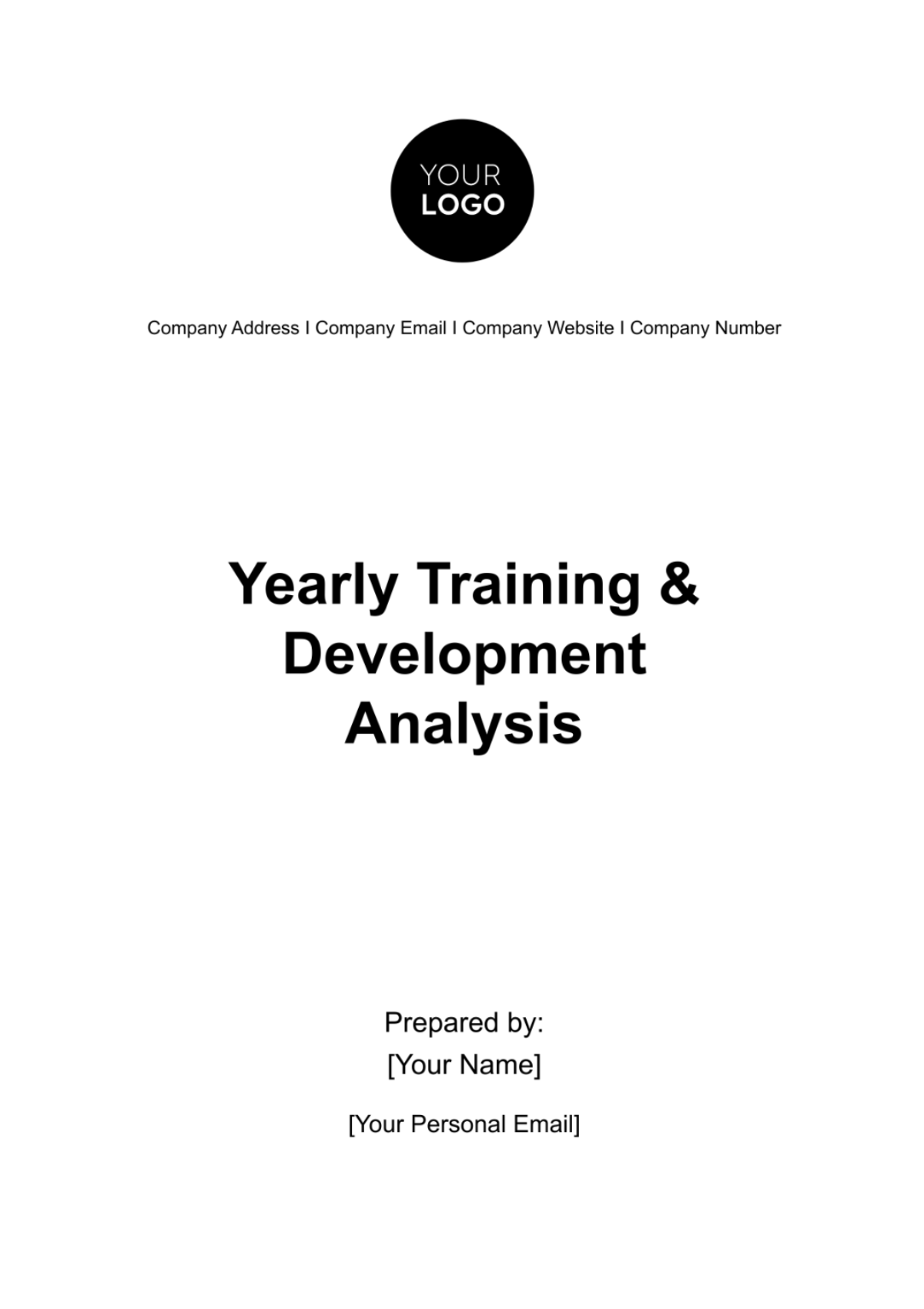Department-Specific Training Needs Analysis
TABLE OF CONTENTS
I. Introduction............................................................................................................. 3
A. Purpose of the Training Needs Analysis.............................................................. 3
B. Document Scope.................................................................................................... 3
II. Department Overview............................................................................................ 3
III. Department Mission and Goals............................................................................. 3
A. Mission Statement:................................................................................................ 3
B. Goals and Objectives:............................................................................................ 4
IV. Current Skills Assessment................................................................................. 4
A. Existing Skills Inventory......................................................................................... 4
B. Skills Gap Identification......................................................................................... 4
C. Skill Priority Ranking.............................................................................................. 4
V. Training Objectives................................................................................................. 5
A. The training program aims to:............................................................................... 5
B. Targeted Skills Development................................................................................. 5
C. Training Methods and Resources......................................................................... 5
VI. Employee Input................................................................................................... 5
A. Employee Surveys.................................................................................................. 5
B. Focus Groups.......................................................................................................... 5
C. One-on-One Interviews......................................................................................... 6
VII. Suggested Training Programs........................................................................... 6
A. Advanced HR Analytics Workshop....................................................................... 6
B. Compliance Masterclass....................................................................................... 6
C. Diversity & Inclusion Training................................................................................ 6
D. Conflict Resolution Skills Workshop..................................................................... 7
VIII. Training Needs Analysis Results....................................................................... 7
A. Summary of Identified Training Needs................................................................. 7
B. Training Needs Assessment Matrix...................................................................... 7
IX. Skill Enhancement Recommendations............................................................. 7
A. HR Analytics:.......................................................................................................... 7
B. Labor Law Compliance:......................................................................................... 8
C. Diversity & Inclusion:............................................................................................. 8
D. Conflict Resolution:................................................................................................ 8
X. Conclusion.............................................................................................................. 8
A. Summary of the Training Needs Analysis............................................................ 8
Introduction
A. Purpose of the Training Needs Analysis
The purpose of this Training Needs Analysis (TNA) is to evaluate and address the skill gaps within the Human Resources Training and Development Department (HR T&D) in order to enhance overall departmental performance.
B. Document Scope
This document provides a comprehensive framework for conducting a Training Needs Analysis specific to the HR T&D Department. It encompasses the assessment of current skills, identification of training objectives, employee input, results analysis, training plan development, and evaluation.
Department Overview
Department Name | Human Resources Training and Development (HR T&D) |
Department Head | [Your Name] |
Department Contact Information | [Company Number] [Company Email] |
Department Mission and Goals
A. Mission Statement:
To empower our employees with the skills and knowledge required to drive the company's success through continuous learning and development.
B. Goals and Objectives:
● Enhance employee performance through targeted training programs.
● Ensure compliance with evolving HR regulations and practices.
● Foster a culture of continuous learning and skill improvement.
Current Skills Assessment
A. Existing Skills Inventory
Employee Name | Technical Skills | Soft Skills | Certifications |
Dian Cuevas | HRIS Management | Communication | PHR Certification |
Sheila Williams | Employee Relations | Leadership | SHRM-CP Certification |
Brendan Andrus | Recruitment Strategies | Problem Solving | None |
Tom Gonzales | Training Delivery | Teamwork | HR Analytics Course |
B. Skills Gap Identification
The skills gap analysis identified several gaps in the department's skill set. Notably, there is a need for advanced HR analytics skills and a more comprehensive understanding of labor laws and compliance.
C. Skill Priority Ranking
Skill Area | Priority Level |
HR Analytics | High |
Labor Law Compliance | High |
Diversity & Inclusion | Medium |
Conflict Resolution | Medium |
Training Objectives
A. The training program aims to:
1. Improve the department's ability to analyze HR data effectively.
2. Ensure full compliance with labor laws and regulations.
3. Enhance diversity and inclusion awareness.
4. Strengthen conflict resolution skills.
B. Targeted Skills Development
Skills to be developed or improved:
● HR Analytics
● Labor Law Compliance
● Diversity & Inclusion Awareness
● Conflict Resolution
C. Training Methods and Resources
● In-house workshops and seminars
● External HR analytics courses
● Online compliance training modules
● Diversity and inclusion training consultant
Employee Input
A. Employee Surveys
The employee surveys revealed that 78% of respondents identified a need for more advanced HR analytics training, while 65% emphasized the importance of comprehensive compliance training.
B. Focus Groups
Focus groups highlighted the desire for hands-on HR analytics workshops and the need for a more structured approach to handling employee grievances and conflicts.
C. One-on-One Interviews
Individual interviews reinforced the importance of practical skills development and the preference for interactive training methods.
Suggested Training Programs
Several training programs were suggested by employees:
Program | Provider | Cost |
Advanced HR Analytics Workshop | HR Analytics Institute | $2,500/participant |
Compliance Masterclass | Compliance Learning Solutions | $500/license |
Diversity & Inclusion Training | D&I Experts Consulting | $3,000/session |
Conflict Resolution Skills Workshop | Conflict Resolution Associates | $1,800/participant |
A. Advanced HR Analytics Workshop
1. Description: A 3-day workshop focusing on HR data analysis techniques.
2. Provider: HR Analytics Institute
3. Cost: $2,500 per participant
B. Compliance Masterclass
1. Description: An online course covering labor law compliance.
2. Provider: Compliance Learning Solutions
3. Cost: $500 per license
C. Diversity & Inclusion Training
1. Description: In-person training sessions led by a diversity consultant.
2. Provider: D&I Experts Consulting
3. Cost: $3,000 per session
D. Conflict Resolution Skills Workshop
1. Description: A 2-day interactive workshop on resolving workplace conflicts.
2. Provider: Conflict Resolution Associates
3. Cost: $1,800 per participant
Training Needs Analysis Results
A. Summary of Identified Training Needs
The analysis has identified critical training needs in HR analytics, labor law compliance, diversity & inclusion awareness, and conflict resolution skills. These skills are vital for the HR T&D Department to achieve its goals effectively.
B. Training Needs Assessment Matrix
Employee Name | HR Analytics | Labor Law Compliance | Diversity & Inclusion | Conflict Resolution |
Dian Cuevas | High | Medium | Low | Medium |
Sheila Williams | High | High | Medium | High |
Brendan Andrus | Low | Low | Medium | Low |
Tom Gonzales | Medium | Medium | Low | High |
Skill Enhancement Recommendations
A. HR Analytics:
● Schedule an Advanced HR Analytics Workshop for Emily Anderson and Michael Davis within the next quarter.
● Encourage Lisa Martinez and Mark Turner to enroll in online HR analytics courses.
B. Labor Law Compliance:
● Ensure all HR T&D employees complete the Compliance Masterclass within the next six months.
C. Diversity & Inclusion:
● Organize Diversity & Inclusion Training sessions for the entire department twice a year.
D. Conflict Resolution:
● Enroll Michael Davis and Mark Turner in the Conflict Resolution Skills Workshop in the upcoming quarter.
Conclusion
A. Summary of the Training Needs Analysis
In conclusion, this Training Needs Analysis has revealed critical insights into the skill gaps within the HR T&D Department. By implementing the training plan outlined in this document, we can better equip our department to achieve its goals and deliver optimal performance.
This Department-specific Training Needs Analysis is a vital step toward enhancing our department's capabilities and contributing to the overall success of [Your Company Name]. For further assistance or inquiries, please contact [Your Name] at [Your Email].
B. Next Steps
The next steps involve executing the training plan, continually monitoring progress, and regularly reassessing training needs to adapt to evolving circumstances and industry requirements.
[Your Company Name]
[Your Company Address]
[Your Company Number]
[Your Company Website]
[Your Company Social Media]
[Your Name]
[Your Email]
